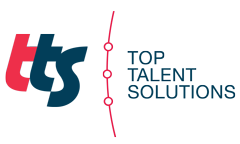Over the last year, we have observed the aftermath of COVID-19, as well as the impact that disruptive technologies such as AI have had on our profession. Now, looking back, the notions of hybrid and remote work, using AI to score interviews, and thinking about the digital workplace seem far more commonplace.
In this article, we discuss some highlights of 2022 as well as trends and directions we have noticed taking place in Industrial and Organizational Psychology (IOP), talent assessments, and recruitment. We also reflect on how these will continue to shape things in 2023 and then apply some much-needed critical thinking about developments that have emerged.
The rise of AI-mediated scoring
A positive sign of IOPs adopting new technology is the steady rise of Artificial Intelligence-mediated scoring of, among others, interview data. In cooperation with our best-of-breed global partner, HireVue, TTS launched several projects with our clients in 2022 that tested this technology.
For instance, we implemented HireVue’s AI-mediated video interviewing solution with a large client in the FMCG space where expert IOPs compared their ratings of competency-based interview answers with those generated by the AI algorithm.
The findings were very promising indeed. Across different competencies (e.g. Dependability, Results Orientation, etc.) there were very high inter-rater agreements between human raters and AI ratings, with an average coefficient of .68!
Not only did this project and subsequent study confirm the applicability of AI-mediated rating in a local sample, but it holds incredible promise for future use, especially for clients who need more efficient, yet scientifically credible ways of screening high-volume recruitment intakes.
For more on this study, be sure to take a look at the full article here.
The long-term value of assessment feedback
Although we have always had good anecdotal evidence for the value and impact of professional assessment feedback, in 2022 we conducted a systematic investigation of both the short- and long-term effects of receiving professional feedback.
We also combined this inquiry with a secondary question: Would the virtual nature of feedback have an impact on the quality of the candidate’s experience?
The findings, summarized in this article (and its follow-up study here), were encouraging.
Not only did assessment candidates experience a range of immediate positive effects such as improving their developmental areas, gaining confidence in their ability to do so, and understanding themselves and their work-related behaviors better, but the long-term impact of professional feedback was also very positive.
In our follow-up study of the same candidates, they reported that they continued to experience benefits following their professional feedback sessions. For instance, more than three-quarters of participants reported that they had changed their less efficient behaviors as discussed during the initial feedback session. Receiving assessment feedback from an IOP professional also motivated candidates to seek out development opportunities, with three out of four participants reporting that they had engaged in further developmental activities following their feedback session.
Finally, our analyses of both studies’ results suggested that the virtual nature of talent assessments’ feedback did not detract from the overall quality or impact of the candidate experience.
The launch of the ADEPT-15
An exciting development on the product front for us was the local launch of Aon’s ADEPT-15 personality measure. This globally benchmarked assessment recently walked away with the Society of Industrial & Organizational Psychology’s prestigious M. Scott Myers Award for Applied Research in the Workplace.
The ADEPT-15 is an adaptive measure that has been proven by over 8 million global administrations, is backed by 50 years of research, and is built upon a database of 350,000 unique items.
We look forward to more use of the measure within our client base, especially given its strong applicability to the domains of safety, digital readiness, and future skills.
For more on our research on ADEPT-15’s local use, read our report here.
Other trends and developments
Although still in flux, some of the emerging trends that we noticed throughout our client base and assessment work included:
A move toward greater centralization of assessment data for global organizations. Although there is much power to be leveraged from the big data gathered across global operations and assessments, we also would include the caveat of not losing the granularity of local information and detail in the assessment data and remaining close to the realities of the job in specific geographies.
Growing conflation and confusion of assessment terms and categories. One not-so-promising development we noticed was increased instances of terminological confusion in the assessment space. Perhaps driven by popular psychology or non-IOP consulting trends, we encountered occasional confusion about terms such as skills, capability, and competence.
Our recommendation would be to return to the thoroughly researched and scientifically robust basis of IOP assessment categories, which are well described and founded in objective assessments.
For instance, research on weighted prediction models using psychometric measurement and accurate job analysis like that conducted by Nathan Kuncel and others, remain relevant to our profession and represent a valuable antidote to trendy, yet ultimately short-lived bandwagons within the talent space.
Final thoughts
We look forward to seeing how the talent assessments highlights of 2022 will move us forward into the new year and beyond. With the rise of AI-mediated assessments and increased usage of best-of-breed adaptive assessments such as the ADEPT-15, we are confident that TTS’s clients have access to the very best of what the IOP profession has to offer.
We have always been advocates for the use of globally-recognized talent assessments that use technology as a mediator and bulwark against social desirability and dishonest test behavior, and we see developments in this area moving rapidly forward and in very positive directions (for more on this, see our article on cheat-proof testing here).
In 2023, we are sure that the emerging digital reality of the workplace will continue to shape our understanding of assessment data and the requirements of future skills that organizations will have to respond to.
At TTS, we stand ready to support our clients in these exciting developments and cannot wait to see what the future holds! To reach out to us, drop us a line at info@tts-talent.com.


